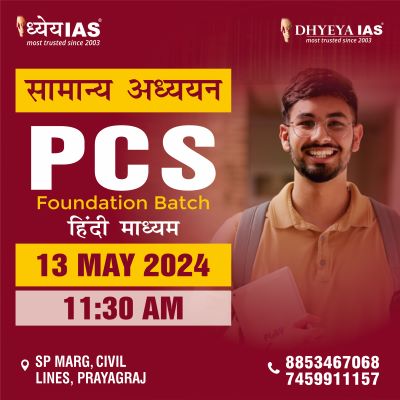Current Affairs Brain Booster for UPSC & State PCS Examination
Topic: Sec 309 of IPC

Why in News?
- Soon after the suicide of actor Sushant Singh Rajput, the national debate has moved from the issues surrounding mental health to one of the most archaic laws that punishes attempts to commit suicide – Section 309 of the Indian Penal Code (IPC)— contrary to popular perception that it has been repealed, continues to exist in the statute book and, as reports suggest, is often misused.
Section 309 of IPC
- The section reads: “Whoever attempts to commit suicide and does any act towards the commission of such offence, shall be punished with simple imprisonment for a term which may extend to one year (or with fine, or with both)”.
- Suicide as such is no crime under the code. It is only attempt to commit suicide that is punishable under this section, i.e., code is attracted only when a person is unsuccessful in committing the suicide.
Recommendations Related to Sec 309
- The IPC (Amendment) Bill, 1978, was even passed by Rajya Sabha, but before it could be passed by Lok Sabha, Parliament was dissolved, and the Bill lapsed.
- Delhi High Court in the case of State v. Sanjay Kumar Bhatia (1985) held Section 309 to be “unworthy of human society”
- Bombay High Court in the case of State of Maharashtra v. Maruti Satpati Dubal (1987) held Section 309 to be ultra vires the Constitution as it violated Article 14 and Article 21.
- 156th Law Commission report (1997) favoured retention of Section 309 of IPC.
- 210th Law Commission report (2008) favoured scrapping of Section 309 of IPC.
- Supreme Court in the case of Aruna Ramchandra Shanbaug vs Union of India & Ors (2011) recommended Parliament to consider the decriminalization of Section 309 of IPC while laying guidelines of passive euthanasia.
- Mental Healthcare Act (MHCA), 2017 was passed which led to the decriminalization of attempt to commit suicide.
Repealed but Existing
- The Mental Healthcare Act (MHCA), 2017, which came into force in July 2018, has significantly reduced the scope for the use of Section 309 IPC — and made the attempt to commit suicide punishable only as an exception.
- Section 115(1) of The MHCA says: “Notwithstanding anything contained in section 309 of the IPC any person who attempts to commit suicide shall be presumed, unless proved otherwise, to have severe stress and shall not be tried and punished under the said Code.”
- Section 115(2) says that “The appropriate Government shall have a duty to provide care, treatment and rehabilitation to a person, having severe stress and who attempted to commit suicide, to reduce the risk of recurrence of attempt to commit suicide.”
- While the rate of conviction in usual crimes in which the police file charge sheets is around 10 %, in cases dealing with Section 309 of IPC, the conviction is as high as 30 % because of the “clinching evidence” available in these cases.
- This Section can potentially deprive a victim of treatment in the golden hour, as hospitals wait for a go-ahead from police in what would be seen as a “medico-legal case”.
Situation Where Sec 309 is Useful
- Section 309 of IPC also puts a burden on the police for whom the only time this law comes to use is “when politicians go on a hunger strike", even as there are a plenty of other laws for such cases.
- Sometimes the threat of suicide is given to blackmail. In these cases, police find this section handy.
- Thus, the nature of section 309 should also be addressed and a balanced approach should be found. A suggestion that cases where the threat of suicide is given to pressurise someone, then legal action could be taken, if evidence is available.






















